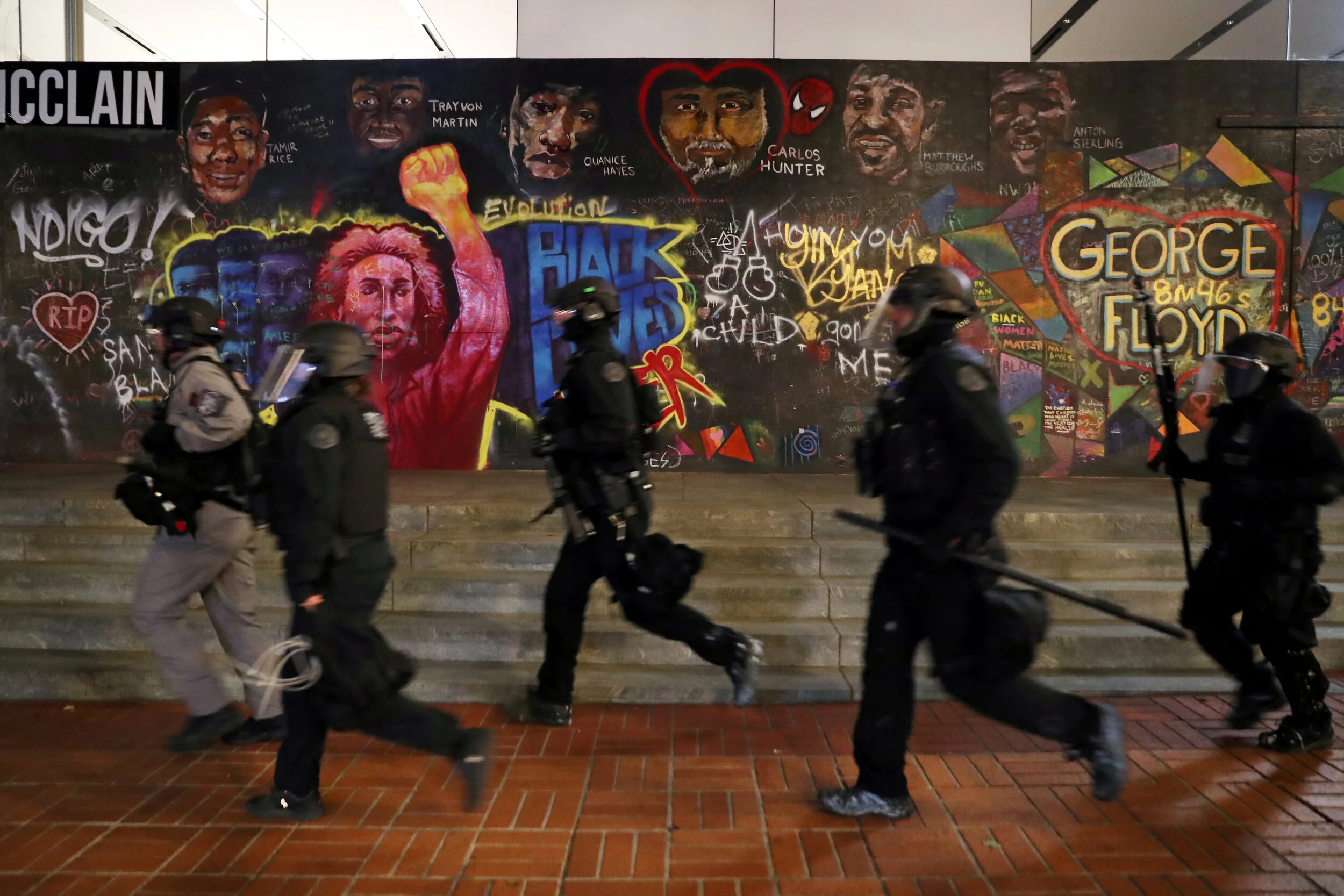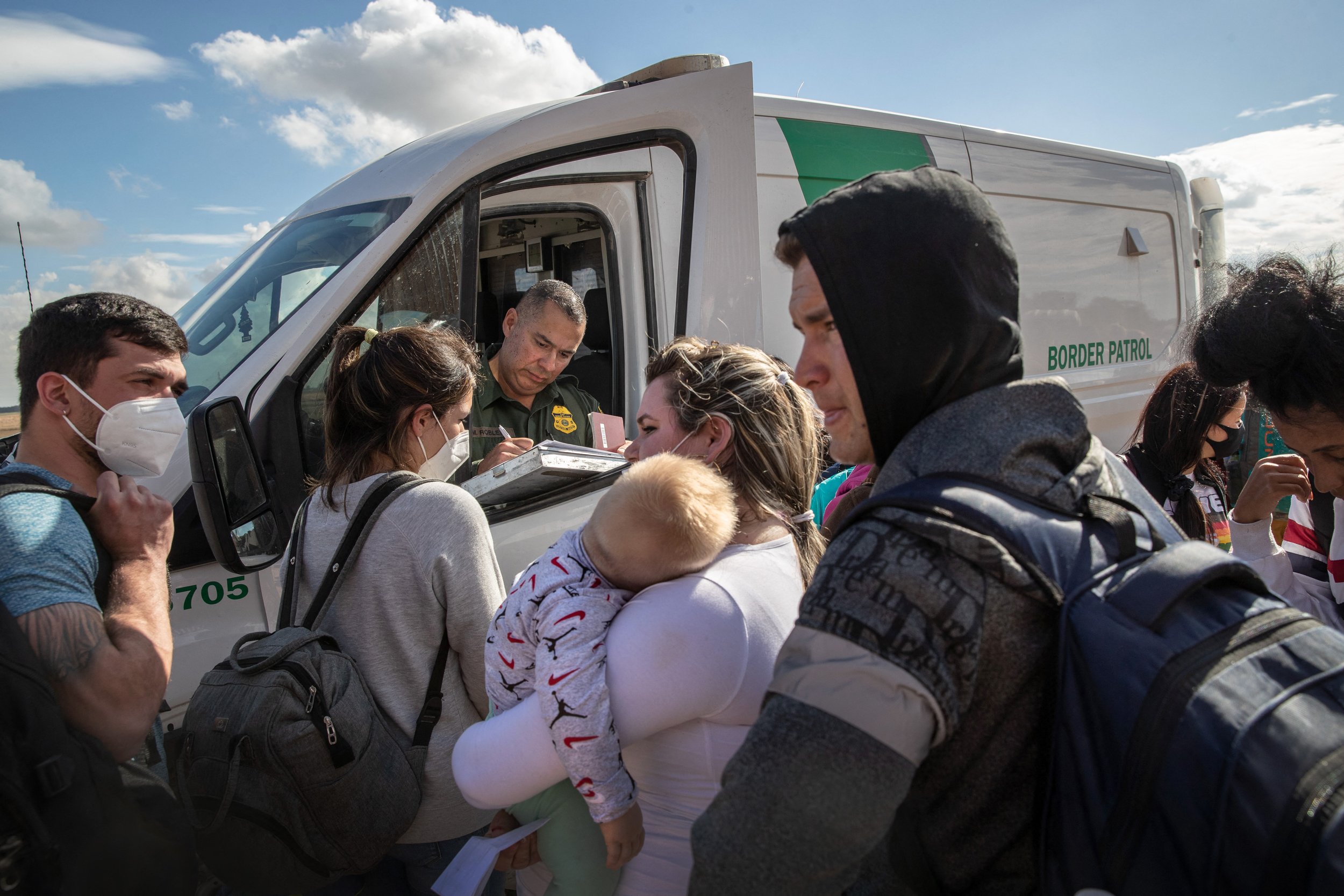How the War on Terror Led to Portland
Portland protesters against police brutality have been demonstrating for nearly 90 days, following the killing of George Floyd by police in May. Since July, protesters have been policed and arrested, not just by local officers, but by federal agents with the Border Patrol Tactical Unit (BORTAC) – essentially the SWAT team of the U.S. Customs and Border Patrol.
Deployed by Homeland Security, these agents are supposedly in Portland to protect “federal monuments, memorials, statues or property,” in accordance with an order President Trump issued in June. But why are immigration agents being put in charge of protecting buildings, and why has the Trump administration refused to remove the agents, despite insistence from Portland and Oregon officials that they do so?
Earlier this month, AJ+ senior producer Mohammad Alsaafin spoke with Spencer Ackerman, a national security reporter for The Daily Beast and author of the upcoming book Reign of Terror, about how counterterrorism efforts launched by the Bush administration — and intensified by the Obama administration — laid the groundwork for this current crackdown.
The War on Terror trained us to be afraid
The War on Terror, which President Bush launched after Sept. 11, warned of an “invisible enemy” preparing to attack the U.S., perhaps from inside our borders, Ackerman said. This, along with the creation of the Department of Homeland Security in 2002, encouraged Americans to see each other as a threat, and heavily affected Muslims and immigrants with undocumented status. “With the creation of the Department of Homeland Security ... immigration comes to be seen as the handmaiden of terrorism,” says Ackerman, placing it “outside of a context of creating more Americans, and instead something that Americans have to be protected from.”
Politicians are treating protest like an insurgency
Ackerman said Trump trying to list “antifa” as a banned terrorist organization illustrated how easily antiterrorism language could be applied to domestic dissent. He pointed to acting DHS Secretary Chad Wolf and North Dakota Rep. Kelly Armstrong referring to fireworks used by protesters as “improvised explosive devices.” “I’ve seen ... the effects of IEDs on people, the devastation that they cause. There's just nothing like this in American protests, and I think they know that. I think the point of using this language is the same purpose that always happens in wars — dehumanization, and a focus on those you disagree with as ‘threats,’” Ackerman said.
The expanded presidential powers “that the Obama administration maintained and the Bush administration pioneered,” says Ackerman, provided “a tailor-made process for an authoritarian like Donald Trump … We'll see that with [future] administrations, whether they're from the left or the right, they'll ultimately maintain the War on Terror, unless they're forced by outside forces — by organizers, by activists, by political movements — to actually dismantle the architecture of the forever war.”
The solution is democracy
“The only solution to authoritarianism is democracy, is organizing, is recognizing that you together with your neighbors are stronger than any force that can be used against you, and in mass, in solidarity, there is defense and there is strength,” Ackerman continued. “Now it really seems like an urgent moment for America to decide if it's going to embrace those most admirable moments of its history … that expand liberty for the greatest number of people, or it's going to simply use the tactics of authoritarianism, the white supremacy, that's baked into this country from its founding.”





